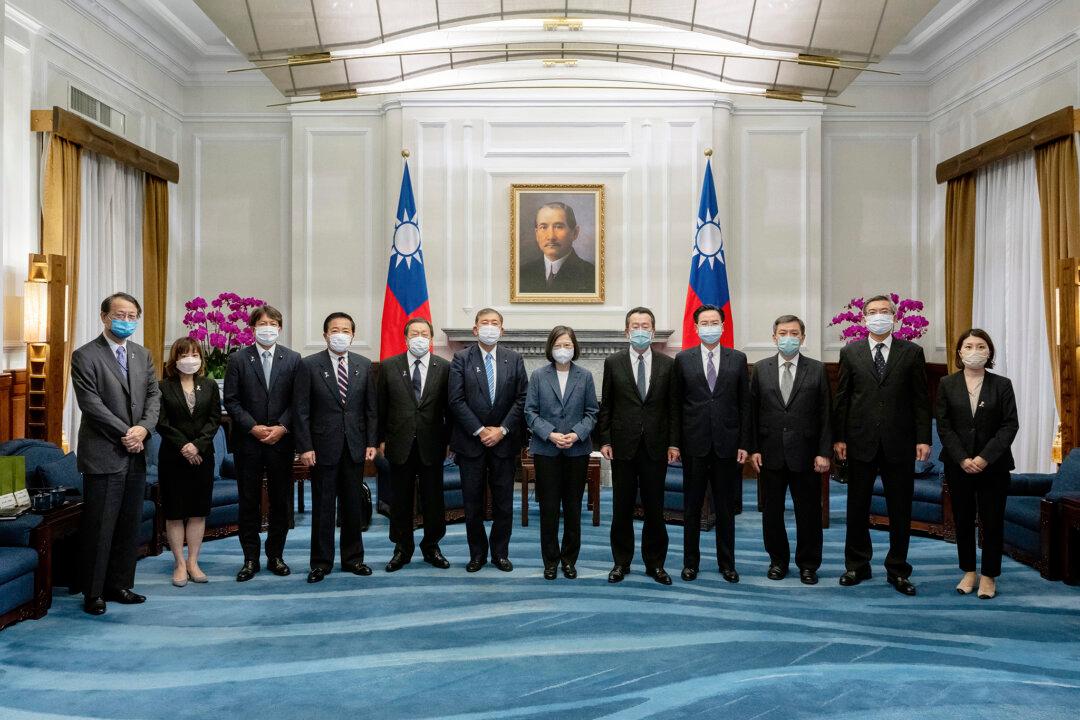A high-level Japanese delegation visited Taiwan to discuss preparations for potential conflicts as the self-governed island is bearing increased military pressures from the communist regime in Beijing.
“We need to think ahead about what kind of situations could happen,” Shigeru Ishiba, lawmaker and former Japanese defense minister, said during a meeting with Taiwan President Tsai Ing-wen on July 28. “And after it happens, what kind of laws and agreements we should prepare, and what kind of armed forces we could employ to address the resulting issues.”




